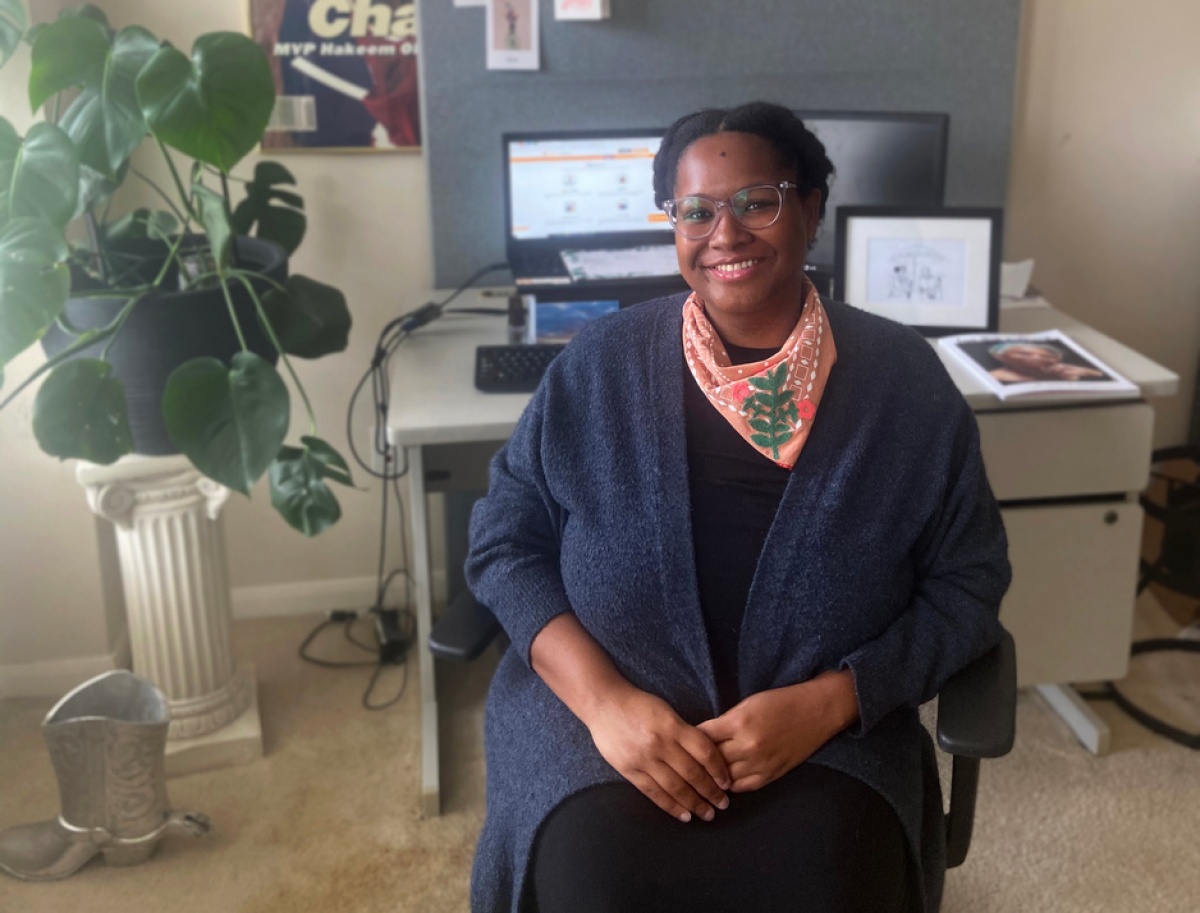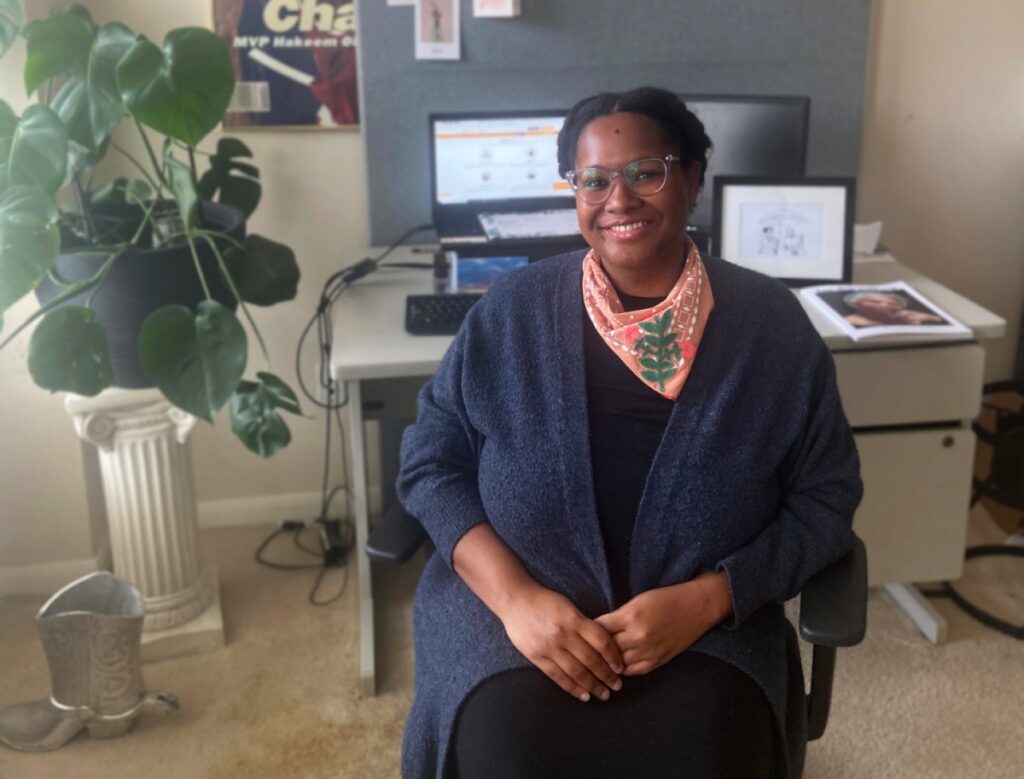Working In Global Health: Kirby Page

PIHer reflects on merging her career with her passion for advocacy
Posted March 4, 2021

For many PIHers, working in global health is more than a career—it’s a calling. Kirby Page, who joined PIH in 2019, has been passionate about social justice for years. Now, as part of the Global Policy & Partnerships team, the Texas native brings that passion into her day-to-day work, supporting and strengthening PIH’s global advocacy for health care as a human right. In her role, she shares vital news and updates in the advocacy space, strengthens systems for information sharing and collaboration, and helps lead the anti-racism core team, among other duties.
We caught up with Page, who is currently based in her home state, as part of our series Working In Global Health, which spotlights PIH staff who have dedicated their careers to making a global impact. During our wide-ranging conversation, we chatted about what drew her to a career in global health, how she advocates for diversity, equity and inclusion, and what new hobbies she’s been exploring lately.
You’ve worked with PIH since 2019, first as a coordinator with the Development team and now as a coordinator with the Global Policy & Partnerships team. What drew you to global health work? What inspired you to work with PIH, specifically?
I was actually really drawn to the social justice aspect of PIH’s work when I first joined. I had a long history of advocacy in the housing rights movement with Habitat for Humanity and was looking to work with an organization that aligned with my values. I found that and more with PIH, ultimately providing me with almost a secondary education in global health through working with and learning from our global colleagues.
What global health issues do you feel most passionate about, or most personally drawn to, and why?
For me, it’s maternal and child health. Every time I am confronted with the statistics of maternal and child health outcomes, such as that of 99% of maternal deaths occurring in developing countries, I am absolutely enraged. I want that rage to be funneled into dignified care for those we serve and those individuals beyond our reach. PIH’s patient-centered approach to care, paired with our government accompaniment work, seeks to address this at scale. Our approach is woven into our care delivery sites, advocacy and accompaniment—all working in tandem to push the needle forward on global health funding and capacity.
Global health is a vast field with many layers, nuances and complexities. What areas do you think we need to dive deeper into? What questions should we be asking?
The looming question for me is how do we intentionally support the patients and the mission of PIH in the most equitable way. I think the conversation around decolonizing our work and power structure as a global health NGO is so important to uphold. We have a ‘Decolonize Global Health’ working group that meets internally to discuss a path forward and analyze different readings on the subject. I do see a lot of internal interest and support for uncovering the various layers in this space.
What advice do you have for people looking to get into the global health field?
My advice would be to reach out to your global health heroes, for starters! Additionally, think about your personal impact and where it makes the most sense, from an equity lens. I think being conscious of and actively working against the power dynamics that many of us perpetrate in the global health field is a key consideration when working to save lives and improve health outcomes. Lastly, there are many avenues into the field of global health and it’s definitely not a one-degree-fits-all space—you will be able to find your niche.
What does Black History Month mean to you? What are some ways that you celebrate it?
For the past six years, I have been putting out a daily email series for the entirety of Black History Month. It wasn’t really on my radar prior to that. I mean, it was on the school curriculum, but that doesn’t really cut deep in the American school system and always left me feeling tokenized. The Daily Black History Month emails have really helped me reclaim the history and celebration of my cultural heritage and understanding. I have also found a deeper connection with Black History Month, and the Black legacy in general, in the communities I have built around me. I feel very blessed to have friends, colleagues, and family that reflect my lived experiences as a Black woman and support me in that, as I hope to do for them.
As we celebrate Black History Month, we want to uplift the urgent and ongoing work of advocating for diversity, equity, and inclusion within organizations and society at large. Is there anything you’d like to share about your work with the Anti-Racism Core Team or other efforts related to this?
The Anti-Racism Core Team (ARCT) at PIH emerged as an organic staff collective focused on racial justice, accountability, and—at its core—community. The way I see it, which is in no way the singular defining view, the ARCT is a means of protecting and cultivating the sense of community that makes PIH so special. The ARCT serves to provide staff resources, facilitate group communication, and map out internal issues to be addressed for PIH leadership. The team built a work plan to carry out the directives identified by the all-staff advisory groups in the summer of 2020 and have focused on building the frameworks for harm reduction and bolstering diversity within the PIH community. The Anti-Racism Core Team members and various other affiliated staff have worked tirelessly to achieve this and more. With community at the core, my hope is that the ARCT can serve to advocate, inform, and uplift PIH staff.
PIH has grown and evolved a lot over the past few years, especially since the COVID-19 crisis hit. Now, some of us are working from home. How has that been going? What’s your home office like? Anything you miss from the days of working at the Boston office?
The transition from the office to working from home would’ve been difficult even without the looming pandemic. I loved the social aspect of the office and often found some of the best partnerships through random conversations with coworkers. I have tried to mirror that with coffee chats and really intentional check-ins with folks, but Zoom fatigue is real. I recently moved home to Texas to ride out a few months with my parents, and I have been lucky enough to upgrade to a true office space from my initial haphazard office in the window nook of my bedroom at my Boston apartment. I am hopeful that I can, and will, return to the office and share space and memories with my fellow PIHers one day.
When you’re not working, how do you like to spend your time? Any hobbies or projects you’ve been exploring lately?
Being back in Texas has really allowed me to take advantage of the outdoors this winter. I have been frequently going on hikes or long drives with the windows down (which technically counts as the outdoors). In my adventures, I am constantly on the lookout for a good cow (Hereford is my favourite) or alligators, which aren’t hard to come by in southeast Texas. I have also really been enjoying trying new recipes and my newest hobby of cooking on the fly, which is just looking at food pictures on Instagram and recreating them without a recipe.
Article originally published on pih.org
As part of the Working in Global Health series, hear from PIHer Mary Cooper.



